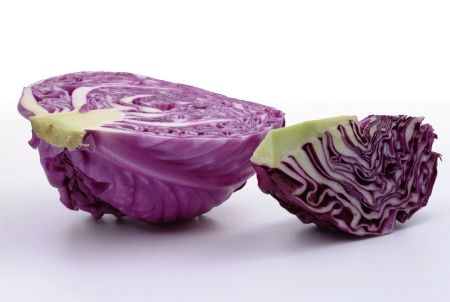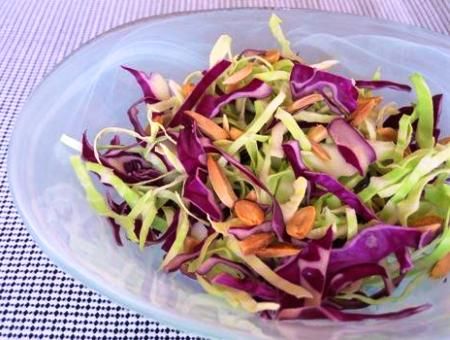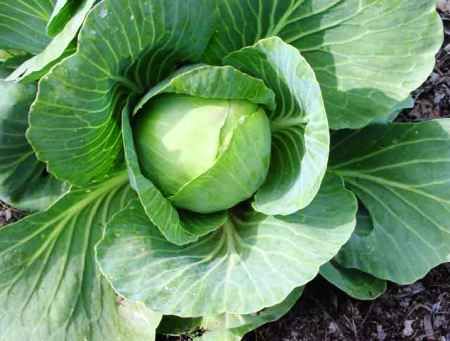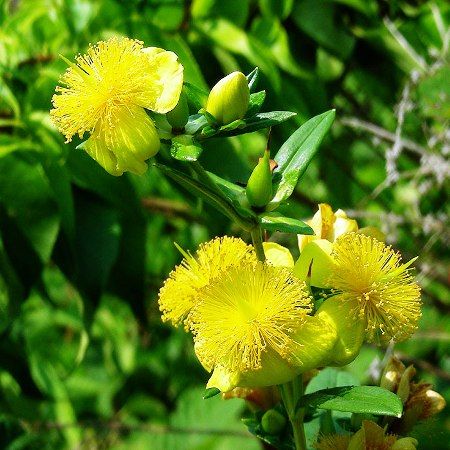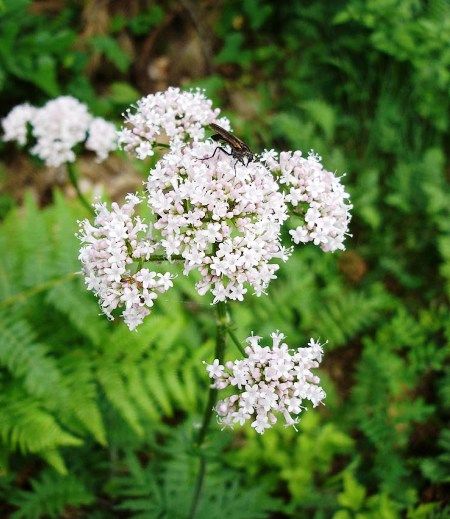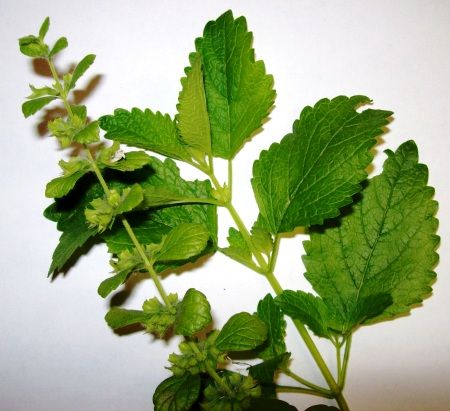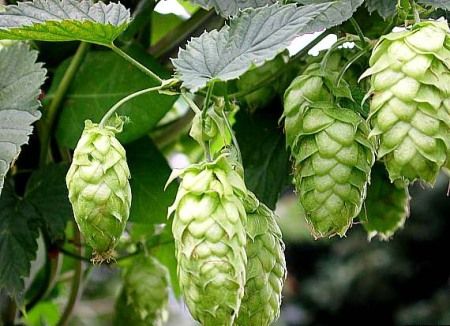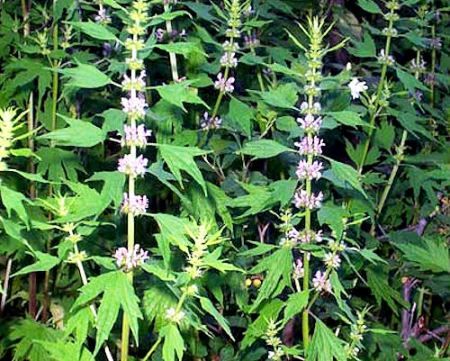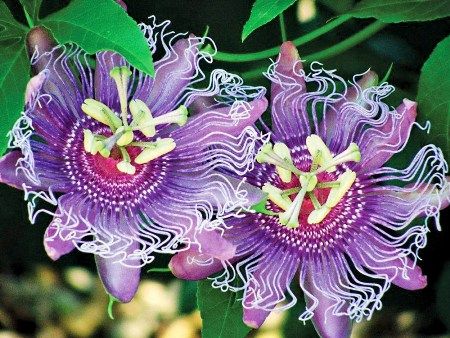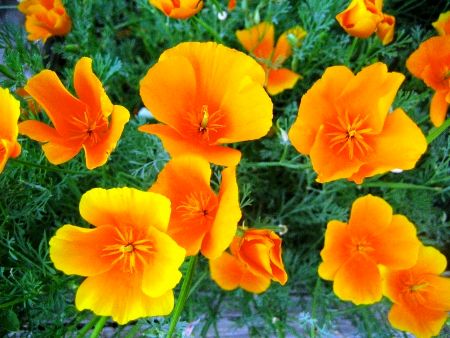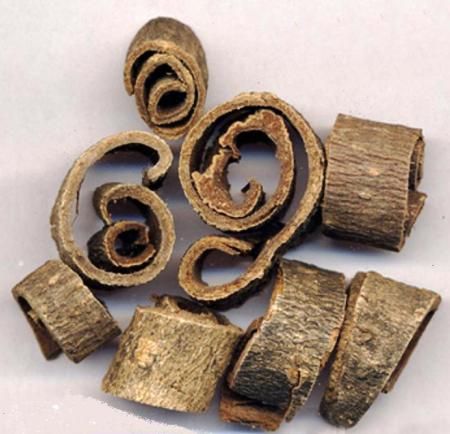
Botanical name: Brassica oleracea
Descended from cabbage grown wild in Mediterranean regions thousands of
years ago, the leaves in today’s varieties sometimes have interesting
dissimilarities. Some appear wide-spread and waffled, while others are smooth and
tightly bunched. The colors vary as well, presenting pale green, blue green,
red, reddish purple, and nearly white. All have very short stems which, other
than garden dirt on the very end, are just as delicious and nutritious as the
leaves.
Cabbage is best prepared as close to raw as possible – sometimes called
tender-crisp – to preserve this veggie’s many nutrients.
Coleslaw may be the most familiar cabbage preparation for Americans,
but it’s also revered world-wide for the scrumptious flavor it lends to many
kinds of hot soup.
Health Benefits of Cabbage
Cabbage has the highest amount of some of the most powerful
antioxidants found in cruciferous vegetables – phytonutrients such as
thiocyanates, lutein, zeaxanthin, isothiocyanates, and sulforaphane, which
stimulate detoxifying enzymes. Research has shown these compounds to protect
against several types of cancer, including breast, colon, and prostate cancers.
They also help lower the LDL (low-density lipoprotein) or "bad
cholesterol" levels in blood, which can build up in arteries and cause
heart disease.
Rich in vitamin K, cabbage provides 85 percent of the body’s daily
requirement. This is very important, not only for bone metabolism, but as a
known Alzheimer's disease preventative by limiting neuronal damage in the
brain. The 54 percent daily value of vitamin C supplied to the body with one
serving of cabbage is impressive, too – even more than oranges – which can help
scavenge harmful, pro-inflammatory free radicals and protect against infection.
Cabbage is also an excellent source of fiber, vitamin B6, folate, and
manganese, as well as healthy amounts of thiamin (vitamin B1), pyridoxine
(vitamin B6), and pantothenic acid (vitamin B5). It also provides iron,
magnesium, phosphorus, calcium for strong bones, and potassium for regulating
the heart rate and blood pressure.
Cabbage Nutrition Facts
Serving Size: One cup (89 grams) of raw cabbage
- Calories: 22
- Carbohydrates: 5 g
- Sugar: 3 g
- Fiber: 2 g
- Protein: 1 g
- Sodium: 16 g
Studies Done on Cabbage
Evidence in abundance shows cabbage to be an amazing cure for stomach
ulcers, due to its high phytonutrient content. One in particular –
indole-3-carbinol – has research behind it proving it to prevent and slow the
growth of cancer cells.1 Two tablespoons of cooked cabbage a day has been shown
to protect study subjects against stomach cancer, and speeding up estrogen
metabolism to help block breast cancer and inhibit polyp growth, a forerunner
of colon cancer. Another report showed a 66 percent cut in colon cancer in men
who ate cabbage once a week.2
Compounds in cabbage strengthen stomach muscles, which helps resist
acid attacks, according to another study. A household European remedy for
stomach ulcers, backed up by scientific research, showed complete healing
within 10 days of drinking just one cup of cabbage juice a day. That study
backed up research done in the 1950s in which a quart of cabbage juice was
taken per day, with similar healing affect.
Cabbage Healthy Recipes: Indian Cabbage Salad
Ingredients:
- 2 tablespoons coconut oil
- 1 teaspoon black mustard seeds
- 1 teaspoon turmeric
- 4 cups white or red cabbage, shredded
- 1 teaspoon salt
Procedure:
- In a heavy skillet over medium heat, heat coconut oil.
- Add mustard seeds and turmeric, sauté for 1 minute
- Stir in cabbage; add salt, stir-fry for a couple more minutes.
- Add a few tablespoons of water, cover, and let cabbage steam for a couple more minutes.
- Remove from heat and serve. This recipe makes four servings.
(From Healthy Recipes for Your Nutritional Type by Dr. Joseph Mercola)
Cabbage Fun Facts
Spiced cabbage in vinegar was a staple food for sailors on long
voyages, not just for New Year good fortune, but because of the many vitamins,
probiotics, and nutrients it provided. Salted boiled cabbage was also added to
the rice given to workers on the Great Wall of China, giving them strength and
endurance.
Summary
Ample proof is available showing cabbage to have more medicinal value
than any other natural food. It helps heal stomach ulcers and may help prevent
cancer. Colon, prostate, and breast cancer risk are minimized with good amounts
of cabbage in the diet. In fact, some studies indicate that cabbage ingestion
may be more effective than any other treatment.
Chopped in cold salads for a delicious crunch, added to vegetable soups
for a satisfying flavor or even juiced, cabbage is truly a super food.
Other sources
http://nutritiondata.self.com/facts/vegetables-and-vegetable-products/2371/2
http://www.phytochemicals.info/phytochemicals/sulforaphane.php
http://www.cdc.gov/cholesterol/ldl_hdl.htm
http://www.naturalnews.com/027454_cabbage_ulcers.html
References
1 http://lpi.oregonstate.edu/infocenter/phytochemicals/i3c,
Indole-3-Carbinol, Aug. 2012
2
http://www.naturalnews.com/027454_cabbage_ulcers.html#ixzz23WkCE9oO, Is
cabbage the ultimate anti-cancer food?, Aug. 2012.
Article Source: http://foodfacts.mercola.com/cabbage.html

